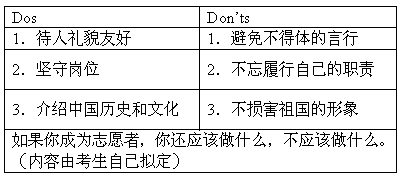题目内容
BEIJING, Nov. 26—U.S. dollar hit another record low against the euro on Friday, with the European currency climbing above $1.32 for the first time. The green-back fell to its lowest in nearly five years against the yen the same day.
By 1943 EST, the dollar was trading at US$1.3265 per euro, compared with US$1.3270 in thin late New York trade. It was at 102.55 yen, little changed from New York after touching 102.37, a level not seen since March 2000, in London.
Japanese Finance Minister Sadakazu Tanigaki repeated his warning against dollar weakness, threatening to take action against sudden moves, but market participants said such verbal intervention (口头干涉) had long lost its clout.
Traders were expecting market liquidity to remain thin on Friday because of the extended U.S. holiday.
In such thin trading, many said a fall in the dollar past 102 yen and US$1.33 per euro was a real possibility.
Referring to recent currency movements as “brutal”, European Central Bank chief Jean-Claude Trichet, who is the most vocal European policymaker on dollar weakness, is due to make comments in Rio de Janeiro, along with ECB council member and Spanish central bank governor Jaime Caruana.
Introduced in 1999 as the common currency for 12 European countries, the euro initially(最初) dropped against the dollar but has risen some 60 percent since hitting an all-time low of 82 U.S. cents in October 2000.
What does “the green-back” refer to in the first paragraph?
A. U.S. dollar B. Another record
C. The euro D. European currency
How did Sadakazu Tanigaki feel about dollar weakness?
A. Excited B. Puzzled C. worried D. Disappointed
The underlined word “brutal” probably means ______.
A. cruelty B. help C. criticism D. apology
According to some people, it was possible for the dollar to trade ______.
A. at 1.3265 per euro B. at 1.32 per euro
C. at 1.3270 per euro D. at 1.331 per euro
【小题1】A
【小题2】C
【小题3】A
【小题4】D
解析:
【小题1】推理判断题。前面讲的是美元贬值,所以此处的green-back应该指的是美元。
【小题2】推理判断题。日本财政部长反复警告美元贬值,并威胁说要采取行动抵制突如其来的变化,由此可见他非常担心。
【小题3】猜测词义题。根据上文日本财政部长的反应及下文Jean-Claude Trichet所要采取的行动可判此项正确。
【小题4】细节理解题。根据第五段可知。

 阅读快车系列答案
阅读快车系列答案After a 15-year ban on the sale of fireworks in Beijing, Kang Guoliang, 51, was able to start his old trade again yesterday.
As a salesman in Xinhui store in Dongcheng District, he is happy about the increasing number of buying fireworks wrapped in red paper — a color standing for happiness and good luck.
“Fireworks are available for the first time in town for more than a decade,” Kang said happily.“People will buy them.”
The store has 300 boxes of fireworks piled up and is open 24 hours at the moment.Residents are buying the fireworks and firecrackers for the upcoming Spring Festival, which falls on February 18.
Citywide, 2,116 registered stores and retailers, 585 in the centre and 1,600 on the outskirts are trading fireworks in the Chinese capital.Sales of fireworks within the Fifth Ring Road started yesterday and will last until March 4, Xinhua reported.Among the stores, 117 stores are permitted to operate 24 hours.About 600,000 boxes of firecrackers worth more than 100 million yuan have been carried to registered stores.
The Chinese capital began a ban in 1993 to reduce fireworks-related deaths and fires during the holiday season.Last September the ban was removed in response to residents’ fondness for fireworks when celebrating Spring Festival.
According to new rules, Beijing residents are allowed to set off fireworks within the Fifth Ring Road all day on Lunar New Year’s Eve and Lunar New Year’s day, from 7 a.m.to midnight every day from February 19 to March 4.
“Spring Festival without fireworks is not Spring Festival,” said Sheng Hefei, who was buying fireworks in the store.“It was fun to light the firecrackers when I was little,” he said.“The sound and view of fireworks make a real holiday.” However, not all residents welcome the return of firecrackers because of injuries, pollution and noise.“My child is scared of the sudden sound of firecrackers, and it is annoying to hear it all night long,” complained Lu Jun, a local resident.
(China Daily02/11/2008)
1.The passage is likely to belong to a(n)__________?
|
A.description |
B.argument |
C.advertisement |
D.news report |
2.What’s the main idea of the passage?
|
A.Beijing fireworks sales start after a 15-year ban. |
|
B.People go to buy fireworks and firecrackers every where in Beijing. |
|
C.Beijing residents all welcome the return of firecrackers. |
|
D.Many stores began to sell fireworks and firecrackers. |
3.We can learn from the passage that ____________.
|
A.every Spring Festival falls on February 18 |
|
B.Beijing residents can set off fireworks everywhere . |
|
C.fireworks are allowed to be sold because people like them. |
|
D.from February 19 to March 4, Beijing residents can set off fireworks twenty four hours every day. |
4.What is the writer’s attitude towards the sales of fireworks in Beijing?
|
A.Negative |
B.Not mentioned |
C.Positive |
D.Satisfactory |
